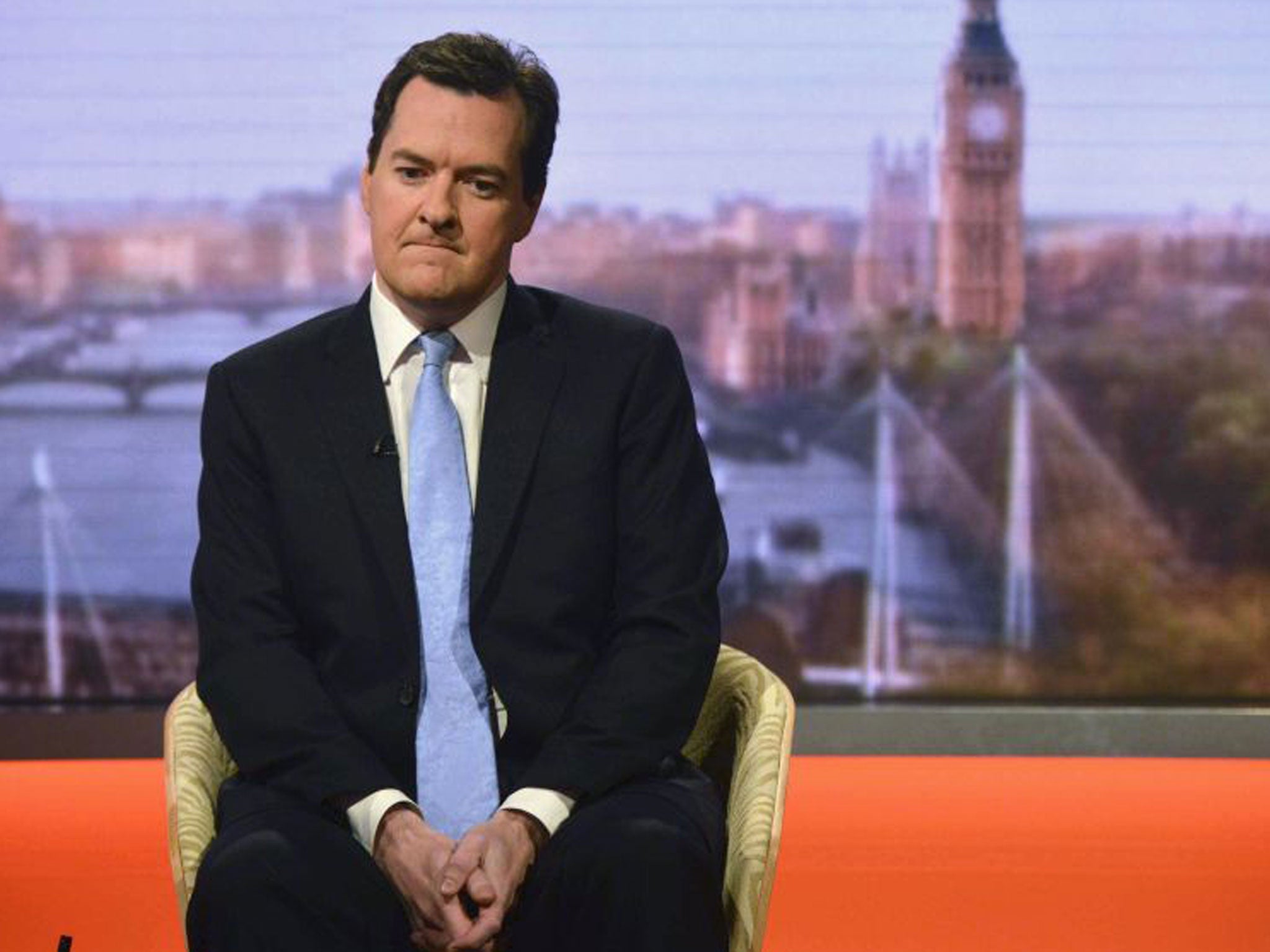Osborne gambles on an economic recovery
Reasons for optimism about growth beyond the immediate outlook are in short supply

It is being widely reported that George Osborne will say on Wednesday, when he gives parliament details of public spending plans for 2015-16, that the UK economy is moving from ‘rescue to recovery’.
This should be seen as a ploy to shift the focus away from public sector austerity and on to growth in the economy. Having been the architect of the cuts, no doubt the Chancellor hopes that by linking rescue and recovery, he can also take credit for the recovery.
There are political risks in this approach.
First, the Chancellor’s statement says that rescue - i.e. putting in place tax increases and spending cuts to deal with the deficit - is incompatible with growth. This is a tacit admission that fiscal austerity over the last three years has been responsible, in part, for the weakness of the economy. The Office for Budget Responsibility (here) and the International Monetary Fund (here), among others, have already said as much. Now it seems the Treasury is ready to acknowledge for the first time that its tightening of fiscal policy has caused aggregate demand – and thus growth – in the economy to be weaker than it would otherwise have been.
Second, Osborne is gambling that the economy will recover over the next two years, ahead of the next general election.
In the short term, this is a reasonable bet. Economists have known for some time that measures of consumer and business confidence are far better than their models for understanding what is happening in the economy in the short-term. The latest round of indicators, including the closely-watched surveys of purchasing managers in manufacturing and in the service sector, suggests growth has strengthened in the second quarter. After increasing by 0.3 per cent in the first quarter of the year, most economists think real GDP could grow by a further 0.5 per cent in Q2. If it is a little stronger, it might even prove to be the best quarter for growth since the recession (if we exclude the impact of the Olympics).
However, a 0.5 per cent growth rate – two per cent at an annual rate - only appears good in the context of what has happened over the last three years. When the Coalition took office the economy had expanded by 2.1 per cent over the previous year. Even if growth is sustained at a quarterly rate over the next year, George Osborne’s opponents will be eager to point out that his ‘rescue’ will only have got us back to where he started from.
But will growth be sustained at a faster pace? Reasons for optimism about growth beyond the immediate outlook are in short supply. It is widely accepted that the UK’s growth rate has been so poor over the last three years for a number of reasons: public spending cuts, the euro zone crisis, falling bank lending to businesses and a squeeze on households’ spending power. None of these is easing.
On Wednesday we will find out details of public spending cuts for 2015-16, but we know that more cuts are certain in the following two years, and quite possibly right up to 2020. Although the Eurozone crisis has eased, in the sense of there being less talk of countries leaving the euro, much of Europe is still in recession, which is bad for British exports. Latest figures from the Bank of England show that bank lending to firms is still falling. And latest figures from the Office for National Statistics show that average earning increased by 1.3 per cent over the last year, compared to inflation of 2.7 per cent.
There are, therefore, still considerable headwinds to growth in the UK. George Osborne wants to switch the focus to ‘recovery’, but he will only be able to do so if the recovery that is clearly taking place in the first half of this year is sustained in the second half, and into 2014 too. This is far from certain.
Join our commenting forum
Join thought-provoking conversations, follow other Independent readers and see their replies
Comments